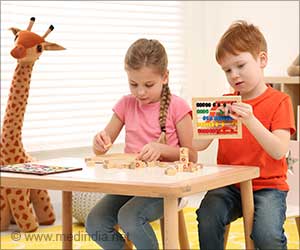Second-born children are in fact more likely to behave rebelliously, according to a study by MIT economist Joseph Doyle. T And that goes double for second-born born.
, test scores, educational achievement, and even job market results. On the other hand, second-born children are more likely to engage in bad behaviors like school suspensions, violent crimes, and delinquency (
).
Doyle examined data sets of families in Florida and Denmark. Despite the large differences in geographic area and environments, the findings were “remarkably consistent results.”
Advertisement
He stated that second-born boys in families with two or more children are roughly 20-40% more likely than first-born boys to receive disciplinary actions at school and end up in the criminal justice system.
Boys are the focus subject of his research because they are far more likely than girls to get into severe problems when they are teenagers. A small percentage of childrenroughly 1 in 10 or 1 in 20are getting into serious problems, and among these children, there seem to be significant differences between first- and second-born brothers.
Reasons Why Second-Born are More Troublesome
Compared to firstborns, children who are second-borns are more prone to be rebellious for the following reasons:
-
The impact of parental time and commitment is most likely the cause. Firstborns receive the full attention of their parents. Children who are born later frequently compete with firstborns for their parents’ time and resources. - Since younger siblings often imitate their older siblings’ behavior, it’s possible that their older siblings are to blame for this undesirable behavior.
- Peer groups can also play a varied role in the lives of first- and second-born children. Though they are from the same household, the younger and older siblings grow up in different peer groups.
- Adults serve as role models for the firstborn. But for second-born kids, their elder sibling is the inspiration and most of their behavior influences their sibling.
- Higher maternal employment rates and use of daycare services for the second child compared to the firstborn could shape their conduct and behavior.
- Birth order stereotypes may also have an influence on second born’s free-will behavior.
Road Ahead- Strategies & Considerations
Recognizing the uniqueness of the child’s needs and fostering an environment that nurtures their strength can pull them from negative to positive outcomes. A supportive family environment along with educational and policy changes could cater to the potential behavioral differences among siblings that could alter the birth order dynamics.
Ultimately, behavior is not defined by birth order but by the ecosystem where the child is nurtured.
Reference :
- Birth Order and Delinquency: Evidence from Denmark and Florida – (https:www.journals.uchicago.edu/doi/10.1086/704497)
Source: Medindia



